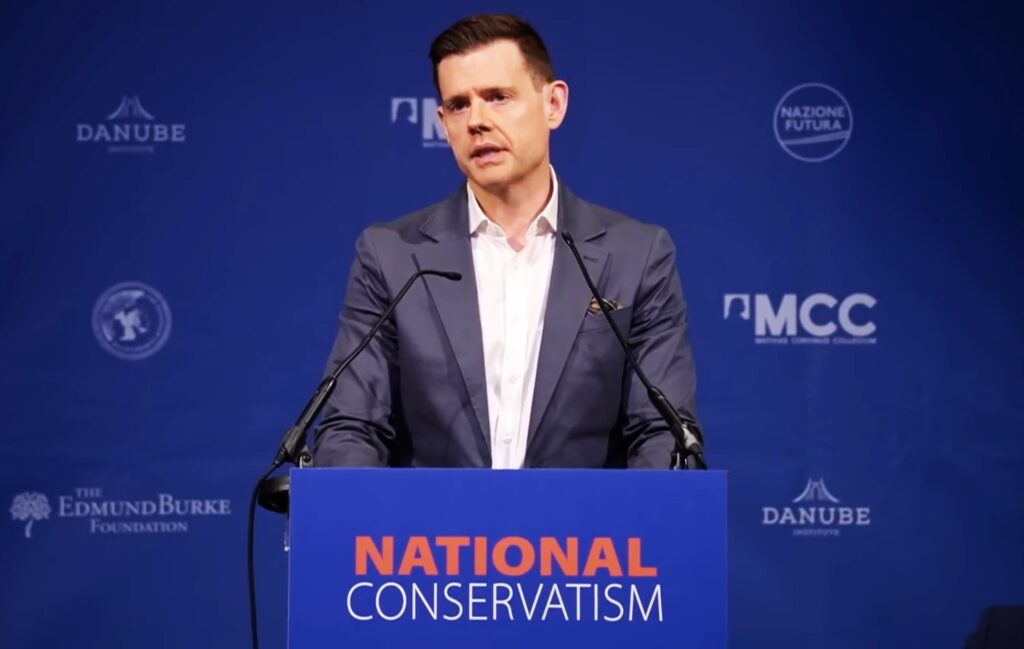The sponsors of the sustainable agriculture pavilion at this year’s COP30 climate summit in Brazil will include the pesticides and seeds giant Bayer, which South American campaigners allege has promoted an industrial agricultural model that is driving “massive deforestation” on the continent.
Bayer will pay at least R$1mn (£142,000) for “diamond” sponsorship of the “Agrizone” pavilion. Organised by Brazil’s agriculture agency Embrapa, the Agrizone signals the sway of agribusiness in Brazil and its determination to appear sustainable, despite the sector’s high emissions and well-established links to deforestation.
Bayer faces an ongoing complaint to the OECD from groups from Brazil, Argentina, Paraguay, and Bolivia accusing it of promoting an agricultural model in South America that drives deforestation, biodiversity loss and conflicts with Indigenous communities.
The German multinational is one of the leading players in South America’s market for genetically modified seeds and related pesticides used to cultivate soya beans.
“This monoculture requires the clearance of large acres of land in countries that have huge conflicts on land tenure…Bayer is really pushing an agribusiness model and a soy frontier that negatively impacts human and environmental rights,” said Cristina Hernandez Hurtado, Senior Legal Advisor of the European Center for Constitutional and Human Rights (ECCHR), one of the OECD complainants.
“Bayer has tried to position itself as sustainable, and we see their participation in the COP on such a large scale as a big effort to present such an image worldwide,” she added. “We are sceptical of such messaging.”
Anyone can file a complaint with OECD National Contact Points over alleged corporate human rights breaches. The OECD does not have the power to impose sanctions, but it can initiate a mediation process between the complainants and the company.
Other sponsors of the Agrizone pavilion include Senar, a branch of Brazil’s leading agribusiness lobby group, the CNA, and UPL, an Indian pesticide manufacturer supplying Brazil with products containing chemicals banned in the EU. Those chemicals can still be legally sold by European companies to Brazil.
Together, these sponsors have paid at least R$4.4m (£625,000) for branding, private negotiation rooms, the right to host events, and speaking slots in climate debates.
A draft contract obtained by Unearthed through an FOI request promises sponsors “visibility” and “image gain” from their “association with companies committed to the changes needed to address…climate change”.
Brice Böhmer, of the campaign group Transparency International, warned that COP30 hosts should be “cautious about the privileged access that is sometimes given to businesses,” as there was at times “a gap between how businesses portray themselves” and work they do to “push for solutions that are in their own interest…behind closed doors.”
Brazilian Agriculture Minister Carlos Favaro will reportedly work from the Agrizone during the summit. The ministry did not respond to a request for comment.
Böhmer called for a conflict of interest policy to regulate the visibility and access given to businesses at COP summits.
“Are U.N. climate summits becoming platforms for genuine climate action, or industry misinformation and undue influence?” he said. “For COPs to drive real climate action, there should be no space for those who lobby against its goals.”
A spokesperson for Bayer said that “Combating climate change requires collective efforts across the entire chain…At COP, we will therefore be involved in discussions on science-based solutions in the fight against climate change.”
Bayer formally responded to the OECD complaint in detail in July 2024, saying that the company took “all information about potential adverse human rights and environmental impacts very seriously,” but that based on its own research and the information provided by the complainants, it “could not identify any connection between the adverse impacts and Bayer’s business.”
In a statement, Embrapa said that as a public research and innovation institution, it “bases its actions and all its relationships on ethics, transparency and an uncompromising commitment to environmental and human rights legislation in Brazil and worldwide.”
It added that it rejected practices that had been “proven to constitute” illegal deforestation, misuse of pesticides or violation of the rights of indigenous peoples and traditional communities.
Embrapa has recently been campaigning for Brazil to adopt GWP*, a new metric for measuring the climate impact of the greenhouse gas methane, which is intended to take into account the fact that methane breaks down quickly in the atmosphere. Critics say that adopting this standard would allow heavy emitters, like the livestock industry, to mask their contribution to global warming.
Hannah Daly, Professor of Sustainable Energy at University College Cork, said that if Brazil, the world’s largest beef exporter, adopted GWP*, it would set a “disastrous precedent.”
She added that Embrapa was promoting “a metric that would allow Brazil’s enormous cattle sector to claim ‘climate neutrality’ while keeping methane emissions high.”
Embrapa said that “discussions on SLCPs [short-lived climate pollutants] should continue to be the subject of scientific meetings before being adopted or abandoned. Embrapa considers that divergence and debate are fundamental parts of scientific development and should be based on arguments grounded in scientific evidence.”
Deforestation and Land Conflicts
Bayer is a dominant force in South America’s market for genetically modified soya seeds and the herbicides used on them.
The development of herbicide-resistant seeds transformed the soya industry in Brazil, where as much as 98 percent of the crop is now reportedly genetically modified. The expansion of soya cultivation has consumed vast tracts of land, driving deforestation and land conflicts at Amazon and Cerrado frontiers.
“This clearance is often tied to forced evictions or the encroachment of indigenous and peasant communities,” Cristina Hernandez Hurtado told Unearthed.
The Guasu Guavirá indigenous land in Western Paraná is under dispute — home to Indigenous villages, but claimed by farmers whose soya fields surround it.
“We have no freedom. And many communities border farmland. So, the pesticides are sprayed 5 metres, 10 metres from the Guarani’s homes,” said Ilson Soares, leader of the Guasu Guavirá land’s Yvy Okaju village.
He added that farmers have at times used pesticides against Indigenous people as a “chemical weapon.”
“Pesticides also cause…anxiety, sadness,” said a female leader from the Guasu Guavira indigenous land who asked for anonymity to avoid threats. She added: “When it comes to pesticides and when it comes to soyabean plantations, nothing is sustainable.”
Brazil is now the largest producer of soya in the world, producing some 169.5mn tonnes in 2024-25. The UK imported £243 million of soya from Brazil in 2024, more than from anywhere else, mostly for livestock feed.
The OECD complaint against Bayer also cites impacts in Bolivia, where it says genetically modified soya now uses around 50 percent of cultivated land, and around 436,000 hectares of forest were cleared for soya between 2011-2022.
Bayer did not answer questions from Unearthed directly related to the allegations in the OECD complaint, but said, “Bayer has historically made sustainability one of its key strategic pillars and contributes globally with innovative solutions and initiatives related to agriculture, health, energy transition and sustainable food systems.”
Hurtado, from ECCHR, said Germany’s national office for the OECD was expected to decide soon whether to mediate the complaint.
UPL, an Indian pesticide manufacturer, will also sponsor the Agrizone. UPL has paid R$900,000 (£125,000), securing various branding and a 300 sq m stand. As of 2023, UPL was permitted to sell 136 agrochemical products in Brazil containing substances banned in the EU due to human health or environmental concerns.
UPL did not respond to a request for comment.
Anti-conservation Lobbyists
Agrizone sponsor Senar is the education arm of CNA, Brazil’s largest agribusiness lobby group. Senar has paid for “master sponsorship”, the highest level, at R$2.5 million (£360,000). CNA recently backed Brazil’s so-called “devastation bill”, a package of legal reforms condemned by climate groups for allegedly loosened environmental licensing. Environment Minister Marina Silva said the bill as originally drafted would undermine the country’s pledge to eliminate deforestation by 2030. By contrast, CNA publicly supported the bill, arguing it would reduce bureaucracy.
CNA has also led efforts to overturn the Amazon Soy Moratorium, a landmark agreement to block the sale of deforestation-linked soya. In February the CNA filed a complaint with Brazil’s anti-trust agency (CADE) claiming that the moratorium was “illegal”.
CADE took a preliminary step to suspend the ASM, but a federal court reversed that decision; a final ruling is pending. Studies have shown that the moratorium has significantly brought down Amazon deforestation.
CNA has also lobbied against EUDR legislation, which bans the import by the EU of products from deforested land, calling it a “significant trade restriction”.
CNA did not respond to a request for comment. Embrapa said that although Senar was a private entity, it has “strong public ties and purposes, as they mainly work in professional training, social assistance, and promoting the quality of life of workers. Therefore, they are relevant actors in the innovation ecosystem of agriculture and family farming, given that they fulfil an important social function that complements Embrapa.”
Climate Denial and Disinformation
In July, COP30 organisers pledged to tackle disinformation. But two of the Agrizone’s sponsors have recently been linked to climate denial. Bayer sponsors Agro Bar, an agribusiness-focused podcast, which in 2023 interviewed notorious Brazilian climate change denier Luiz Carlos Molion. On the episode, Molion, said that the Intergovernmental Panel on Climate Change is responsible for “climate terrorism”. He dismisses CO2 as a significant climate driver, calling it a vital “gas of life” with an atmospheric effect that is too small to measure.
Members of the Brazilian Academy of Science have publicly refuted Molion’s theories.
A spokesperson for the Agro Bar Podcast said it aimed to “broaden the debate and bring different voices and points of view on issues that impact agribusiness and society,” and that “Bayer had no involvement in the agenda, the choice of interviewee or the production of the episode in question”.
During the episode, the presenters did not challenge any of Molion’s views.
“The absence of immediate challenges to guests, or humorous reactions at specific moments, are characteristics of the free debate format and do not imply the promotion of falsehoods or misinformation,” the spokesperson said.
Molion has also regularly lectured at events organised by Agrizone sponsor Senar, where he has been billed as “Brazil’s top climate expert.” At a Senar lecture in 2023, Molion claimed that Amazon rainfall “has absolutely no influence on the rest of the country” and that deforestation has no impact on the global climate.
Molion did not respond to a request for comment.
Bayer did not comment on Molion’s appearance on Agrobar, and still sponsors the podcast.
Another regular guest at CNA/Senar conferences, former Embrapa scientist Evaristo de Miranda, has been accused of leading a group of researchers that intentionally produced “fake controversies…that have seriously impacted environmental conservation, particularly in issues related to deforestation and climate change”.
Miranda’s claims, made via reports, presentations, and newspaper articles, included that Brazil’s environmental protections are the strongest in the world, that conservation laws hinder development and concern over Amazon deforestation is misplaced.
Miranda did not respond to a request for comment.
Professor Klaus Jensen, of the University of Copenhagen, co-led a systematic review of 300 scientific papers on climate misinformation. He told Unearthed that the Brazilian government’s spearheading of a disinformation initiative was important, but that: “the inclusion of sponsors…that have previously and continuously supported denialist and contrarian voices regarding climate change calls into question the value of this component of COP30.”
Subscribe to our newsletter
Stay up to date with DeSmog news and alerts






